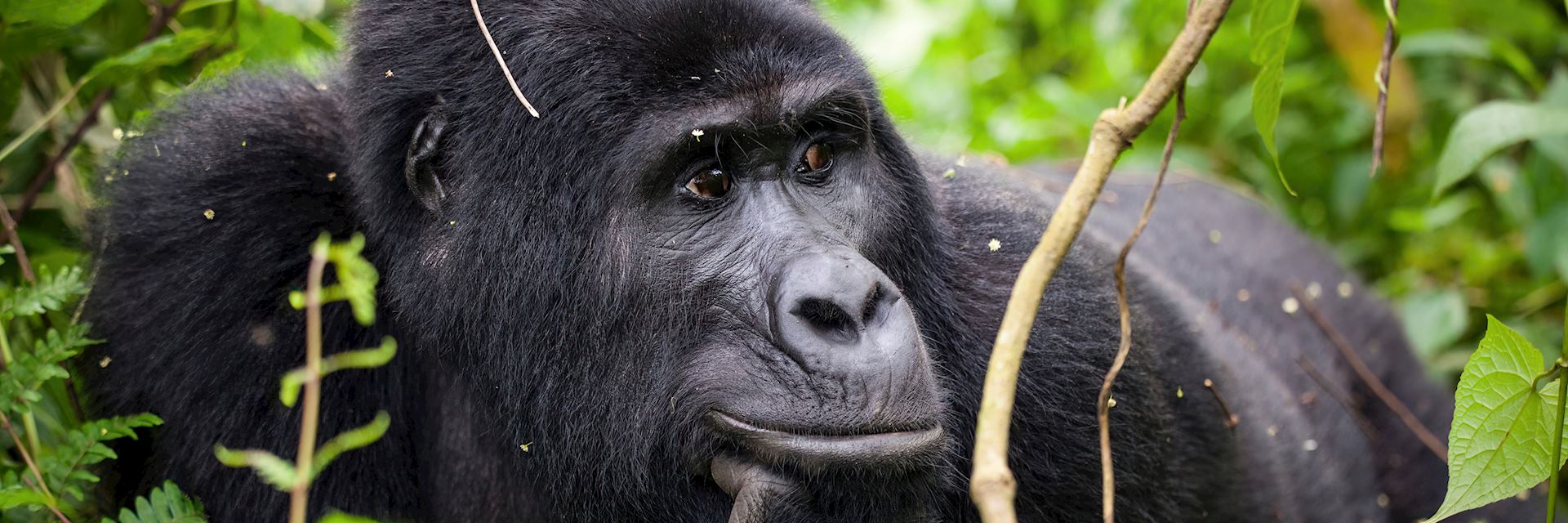Practical Information
Although tourism is on a very small scale in Uganda, the infrastructure has improved rapidly over the last few years.
The main roads are in a good condition and even the unpaved roads are well maintained, whilst high quality lodges and small tented camps are now found in most of the national parks and game reserves.
Light aircraft flights
The best way to travel around southern Uganda is by road as the distances are relatively small and the scenery wonderful, but we would recommend light aircraft flights for visits to Murchison Falls, particularly during the wet seasons.
Gorilla or chimpanzee tracking
On arrival in Uganda you will be met by your driver-guide for the trip. He will guide you throughout your stay in Uganda, joining other expert guides for specialist activities such as gorilla or chimpanzee tracking.
As Uganda has good regional connections with Kenya and Tanzania you can fly to the beach for a relaxing end to your safari.
Language
The official language is English, which is spoken as a second language by most educated Ugandans. There are more than 33 local languages spoken across the country. Almost everybody involved in the tourism industry, either directly or indirectly, will be able to speak some English.
Food and Drink
Local food in Uganda is based around a meat or chicken stew eaten with one of four staples: rice, chapati, ugali or matoke. Ugali is a stiff maize porridge eaten throughout sub-Saharan Africa. Matoke is a cooked plantain dish, served boiled or in a mushy heap, and the staple diet in many parts of Uganda. Another Ugandan special is groundnut sauce. Mandazi, the local equivalent of doughnuts, are tasty when they are freshly cooked. Camps, hotels and lodges that cater to overseas visitors will serve a very international fare, and the quality of food prepared in the most remote bushcamps amazes visitors.
Tipping
Tipping is not compulsory but always enthusiastically received if you are happy with the service and would like to tip. We recommend that you tip your driver-guides direct at the end of your stay; as a rough guideline you might want to tip US$10 per person per day. It is also a nice gesture to give general camp/lodge staff a tip. Here we also recommend US$10 per guest per day. This should be placed in the communal tipping box. Obviously this is very much a rough guide and you are completely free to give whatever you feel is appropriate.
Money
The official currency used in Uganda is the Ugandan Shilling. The most widely recognised currency is the US dollar followed by the pound sterling. Hotels will accept payment for food and drinks in either dollars or pounds. Some restaurants and shops in the tourist areas may also accept payment in US$. Due to a spate of forgeries nobody in Uganda, including banks, will accept any US$ bills issued before 2000 and it is best to carry smaller denominations. Credit cards are accepted at some of the major hotels but a 5-10% surcharge will usually be added. There are very few ATMs in Uganda. Do not rely on credit cards other than as a back-up.
Travel Advice
Our country specialists can advise on any safety concerns you may have. For current information, please refer to the Foreign, Commonwealth & Development Office website.
When to go to Uganda
You'll find temperature and rainfall information, together with a month-by-month guide on visiting, on our guide for when to go to Uganda.
More Information
-
Flight Time
12 hours -
Recommended Airlines
British Airways, Kenya Airways, Turkish Airlines -
Time Zone
UTC +3
